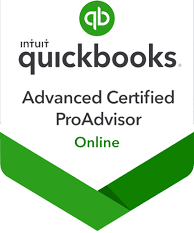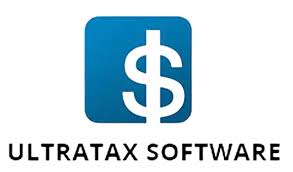A Few Words
IRS PAYMENT PLAN
IRS PAYMENT PLAN
Sometimes, despite your most optimistic assumptions and your accountant’s tax plans, you end up owing the IRS when you file your taxes. Managing your tax payments can be easy if you can simply write a check to cover the amount. But if your money’s tied up or you’re experiencing cash flow issues, you may not be able to pay it all off at once. Therefore you might need to setup an IRS payment plan.
If you’re looking at a large tax bill wondering how to pay it, you can get help directly from the IRS in the form of a payment plan. Our firm NY Certified Public Accountants, a top rated CPA New York firm.
Don’t worry; you can get help in the form of tax resolution services, which can lead to positive outcomes, such as:
* An IRS payment plan, which is like an IRS installment agreement
* Tax representation, to stand up to the IRS for you
* Offer in Compromise, which, if you qualify, lets you settle your debt by paying a percentage
For more information about the best way to handle a tax balance with the IRS and how to set up an IRS Payment Plan,
THE PREREQUISITES
Before you can file an application to request a payment plan with the IRS, you have to make sure all your other tax returns are complete and current. Having past due tax returns automatically disqualifies you from setting up a monthly installment plan. You must satisfy other conditions as well. For instance:
Individuals cannot owe more than $50,000, including past due income tax, late fees and penalties. If you’re considered self-employed, you must be up-to-date on all your quarterly estimated tax payments for the year.
Businesses cannot owe more than $25,000 in payroll taxes and must be current on filing income tax returns.
SETTING UP YOUR ACCOUNT
Requesting an online agreement with the IRS is the simplest and fastest way to get the ball rolling. The IRS has put the forms you need —Form 9465 and Form 433-F — on their website. All you do is present your current financial situation on the forms, and the IRS decides if the monthly payment amount you’ve requested is acceptable.
If you owe more than $50,000, you may find it more challenging to get an installment plan accepted. You have to have a complete financial statement, as well as submit supporting documents, to account for all of your income, expenses and assets. Call the phone number on your IRS bill or contact the top NYC CPA, Our firm to lead you through the maze of paperwork and requirements to get your IRS monthly installment plan set up. Some additional advice includes:
* Don’t offer to pay more than you can reasonably afford. Once the IRS takes you up on your offer, you can’t renegotiate your agreement easily. So leave a cushion in your budget every month beyond the payment to the IRS for unforeseen expenses and emergencies.
* At the time you turn in your paperwork, offer to make a payment right then. The IRS typically takes a few months to get you all the paperwork detailing your IRS monthly installment plan, so making payments before the plan is finalized shows you can make the payments proposed. This may encourage the IRS to more readily accept your proposal.
To pay the IRS on a monthly basis, you have several options:
* Accepting direct payroll deduction
* Setting up a direct debit payment
* Mailing in your payments
* Making payments online
Whichever payment system you use, make sure the IRS gets those payments every month and don’t miss a payment setup by IRS payment plan. If you do, the IRS may come asking you to pay the remaining balance in full immediately. You won’t be able to go back on the IRS payment plan.
KNOW WHAT IT COSTS
An IRS installment agreement to pay your taxes over time may not be the perfect solution for you or your business. You can have up to 72 months to pay the money you owe, but you have to pay about 10 percent interest over the life of the plan in fees and penalties, which continue to accrue while you’re making payments. The interest alone can really add up in six years.
Additionally, the IRS charges you for setting up the IRS payment plan. The fee ranges from $31 to $225, depending on the amount of your debt, whether you’re an individual or a business and where your financial circumstances currently stand.
OTHER WAYS TO PAY
If your application for the IRS installment agreement is rejected, your options for paying off the taxes you owe shrinks. You can ask the IRS to put their collection activities on hold or you can file for bankruptcy. Before you resort to either of these alternatives, try one of the following strategies. Each of these options relies on a specific set of conditions, so not all of them may apply to you or your business:
* Personal loans from friends or family. With a loan, you can pay the IRS immediately and avoid penalties. Then do the right thing to pay back that friend or family member with the same dedication you would have paid the IRS.
* Short-term extension. The IRS offers these 120-day extensions to help you gather the money you owe, which lets you avoid extra penalties and fees. The IRS even waves the set-up fee for this type of repayment.
* Undue hardship extension. These extensions are for situations where paying the amount owed would cause you financial distress — such as being forced to sell your home to make the payment. The IRS decides on a case-by-case basis whether to give you up to 18 months to pay the full amount.
* Offer in Compromise. Also known as an OIC, it’s a request to the IRS to accept a lower payment because you’ll likely never be able to pay them back in full. OICs are particularly challenging to get, but it’s worth a shot if your financial situation has become untenable.
* In-business Trust fund express installment agreement. If it’s your business that owes the taxes, you may be eligible for this agreement, which doesn’t require a financial statement or verification. Your business must: owe less than $25,000, agree to pay the debt within 24 months and enroll in a Direct Debit Install Agreement if the amount owed is greater than $10,000.
For more information about the best way to handle a tax balance with the IRS and how to set up an IRS installment agreement, contact the tax accountants at our firm.
Clients
Our Clients










Free Estimation
Request A Quote














